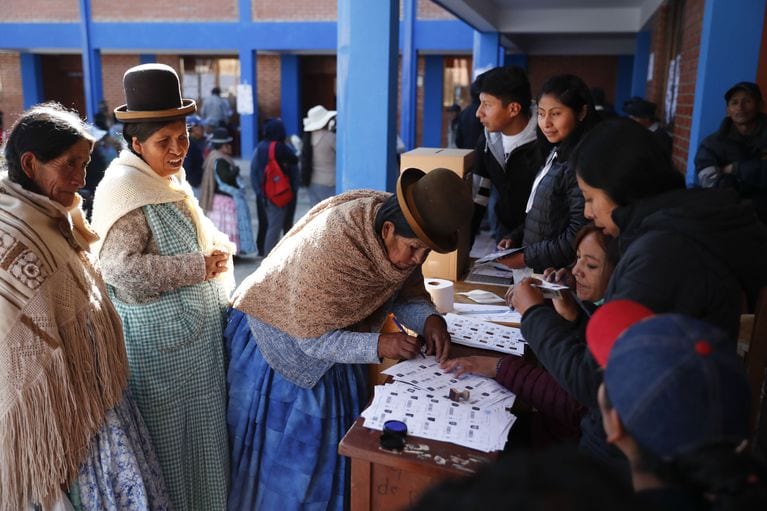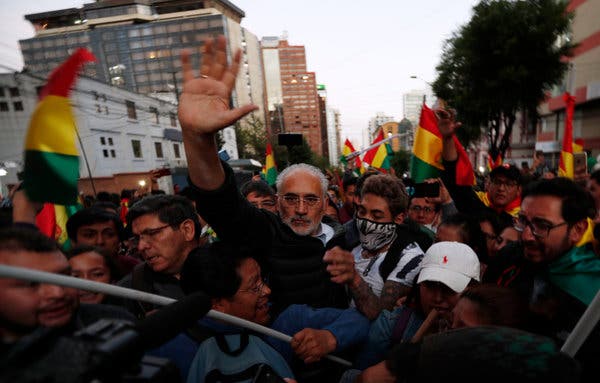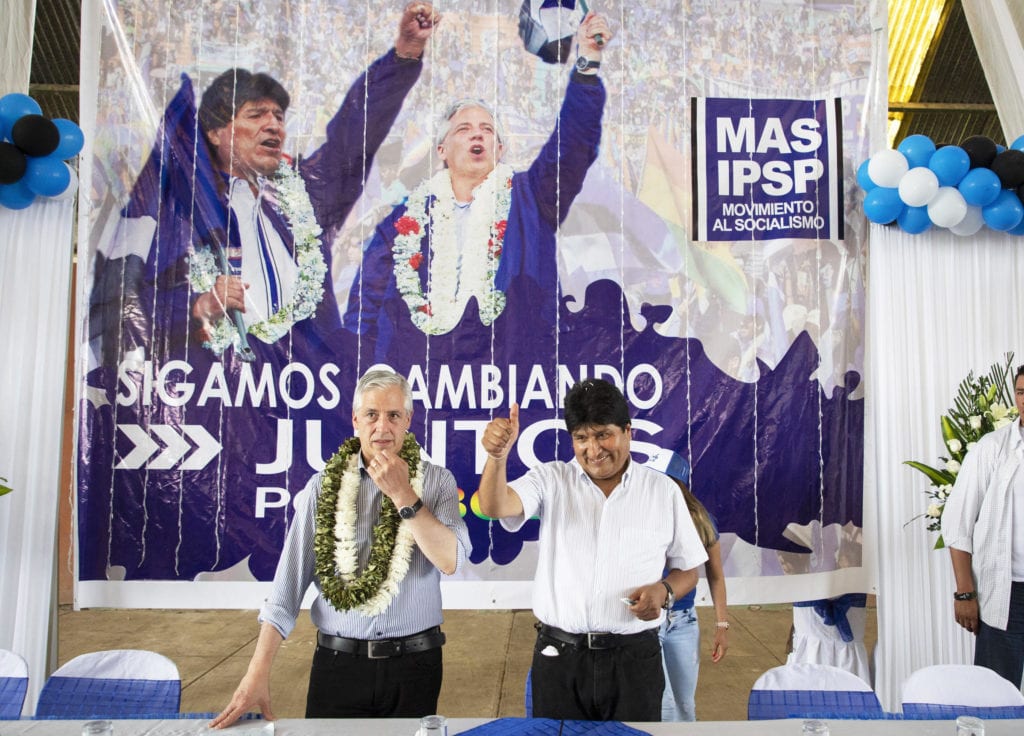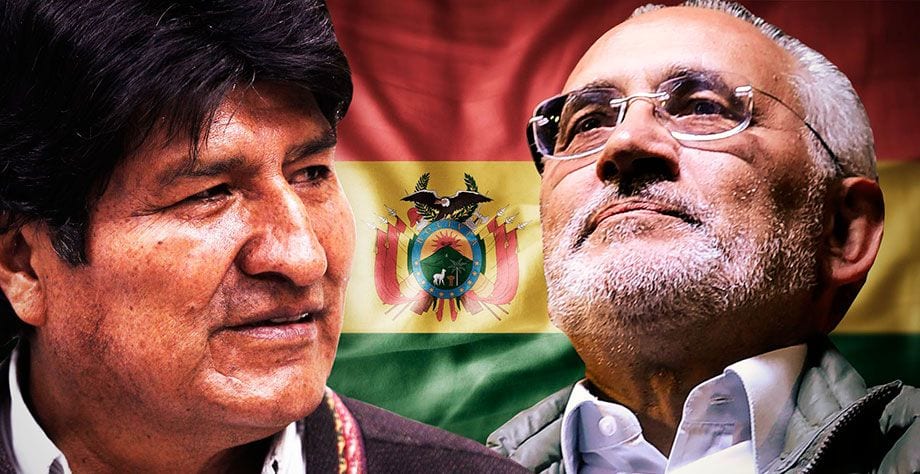On October 20, presidential and parliamentary elections in the Plurinational State of Bolivia were held. After checking 100% of the ballots, the country’s Supreme Electoral Court published data according to which the current president Evo Morales gained 47.08% of the vote, and his main rival Carlos Mesa took second place – with 36.51% of the vote. According to the current Political Constitution of Bolivia, a 10% margin guaranteed the victory of Morales in the first round. After summing up the results, Bolivia split into two camps, and large-scale strikes in nine departments of the country have not stopped for the eighth day. What was the “bone of contention” between the two sides? Against what and why are the Bolivians on strike?
Protesters in nine departments of Bolivia block roads during a strike declared in response to the defeat of opposition candidate Carlos Mesa (Spanish – Carlos Diego Mesa Gisbert) in the presidential elections. For several days, hundreds of shops have been closed in the business capital of La Paz, entrances to some areas of the city are blocked by makeshift barricades or road blocks. Oppositionists in Bolivia, disputing the results of the presidential elections, announced the beginning of an indefinite strike on October 21st. Protests in the country have been escalated into violent riots in many regions when it became known about the victory of Evo Morales (Spanish – Juan Evo Morales Ayma). Opposition protesters set fire to several regional branches of the Supreme Electoral Court. A video of a burning building in Potosi, a mountain of glowing ballots in Tarija and bonfires in front of the Electoral commission in Cochabamba spread on social networks and local media of communication.

Initially, the opposition demanded a recount and called on its supporters for street protests. Demonstrations began to turn into riots, and therefore, on October 23, Morales introduced a state of emergency in the country, accusing the opposition of attempting a coup d’etat. Every day the degree of social tension is growing, and supporters of Carlos Mesa have already moved away from the rhetoric of the second round of voting towards radical slogans such as the immediate termination of the mandate of the current head of state.
The United States, Brazil, and Colombia are calling on the Bolivian government to hold a second round of elections if the Organization of American states bodies fail to verify the results of the first round of elections. In turn, the OAS intends to check the ballots in the coming days, which was not opposed by Evo Morales.
On October 25, the President of the Bolivian Supreme Electoral Court Maria Eugenia Choque (Spanish – María Eugenia Choque Quispe) announced that this collegial body was ready to undergo any audit of work at the national or international level that was carried out in the general elections of October 20. “I want to say that the population of Bolivia, the OAS, the European Union and any international organization, as well as political organizations could realize an audit, we are open for any audit,” she said at a press conference.

The opposition candidate from the Civic Community Party (Spanish – Comunidad Ciudadana) Carlos Mesa questioned the transparency of the Transmission of Preliminary Election Results (Spanish – Transmisión de Resultados Electorales Preliminares, TREP) and mobilized his active supporters to speak out against the Supreme Electoral Court in the middle of the vote count process. For its part, on October 23, the Bolivian government addressed the OAS through a letter addressed to the General Secretary of the organization, Luis Almagro (Spanish – Luis Leonardo Almagro Lemes), regarding the official verification of the voting protocols in the general elections, and this appeal was accepted.
Choque explained that the entire electoral process was conducted according to two systems, one of which was “Transmission of Preliminary Election Results” (TREP), and the other through official counting of votes, and also assured that both procedures were accompanied by an audit company, which would submit its report to the following days. She repeated that, as part of the audit preparedness, the Supreme Electoral Court was open to any complaints regarding alleged “fraud”, which would be clarified by a comprehensive analysis, demonstrating the results based on a technical point of view, for dispelling any doubt. The representative of the Supreme Electoral Court Idelfonso Condori recalled that the delegates of the nine parties who participated in the elections have a voting protocol, and the judges of each polling station took photos from the protocols, which excludes any possibility of “falsification”.

The results of the elections in Bolivia and the victory of Evo Morales have already been recognized by most participants in the international community. In the city of Baku, the capital of Azerbaijan, on October 26, the 18th Summit of Heads and State and Government of the Non-Aligned Movement (NAM) ended, in which more than one hundred countries of five continents of the world took part. The Summit of Heads and State and Government was held on October 25-26 and preceded the meeting of Foreign Ministers. Representing Bolivia, the Foreign Minister Diego Pary Rodríguez took part. At the end of the Summit, under the chairmanship of Azerbaijan, the Baku Declaration was adopted with the main conclusions and the Special Declaration, through which congratulations were expressed to President Evo Morales Ayma for his convincing victory in the October 20 presidential elections. It is worth recalling that the Non-Alignment Movement consists of 120 member countries, representing 55% of the world’s population and almost two-thirds of the members of the United Nations. However, the United States and a number of American states continue to call for a general boycott of the result of the will of the Bolivian people. In their opinion, the elections were dishonest, and their results were abnormal.
Clashes between demonstrators are becoming more intense. The supporters of Carlos Mesa grab at the last “straw” in order to continue their struggle for power. In turn, the ruling center-left “Movement to Socialism” Party (Spanish – Movimiento al Socialismo, MAS) held a large-scale rally in El Alto on October 28 in support of the candidacy of the current president. How Morales will be able to overcome strikes in the country, the near future will show. However, the current head of state and his supporters continue to declare their readiness to conduct any verification of the vote count and insist on the fairness and transparency of the elections. Whether “left forces” will be able to maintain their positions is one of the main regional issues. Nevertheless, one thing is obvious: for 13 years, the Movement to Socialism Party has gained very wide coverage and still has strong positions in the country, and Morales supporters so simply do not intend to leave the political arena.


